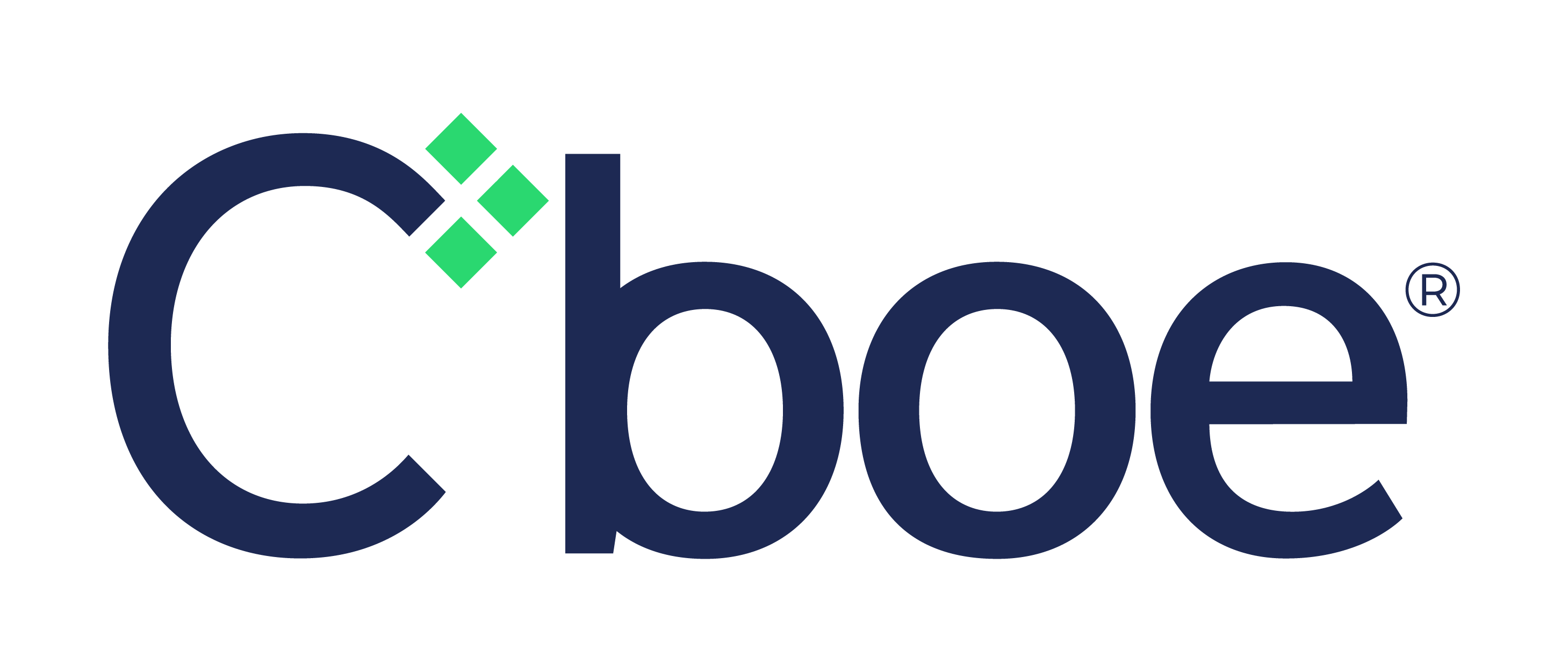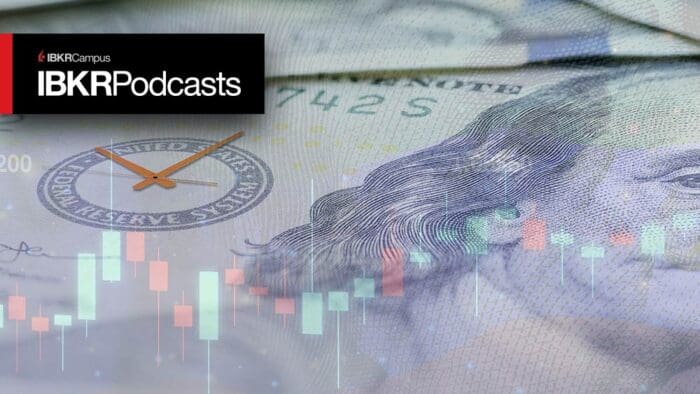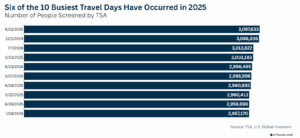Andrew Wilkinson
Welcome to this week’s episode. My name is Andrew Wilkinson and I am joined by Tariq Dennison, who is a wealth manager at GFM Asset Management. Welcome Tariq. You’re joining me today from somewhere within about an hour of Zurich in Switzerland. How are you?
Tariq Dennison
That’s right. I’m fantastic. It’s nice and cool here in Weinfelden and you know, not far from the German border here.
Andrew Wilkinson
Very good. Now to Tariq who joined me a couple of weeks ago on a webinar in which we talked about bonds and fixed income and U.S. Treasury’s in particular. We had a lot of interest in the webinar, and we had a lot of great questions during the session. So given that the Federal Reserve is pretty much finished tightening interest rates and the potential for 2024, is that interest rates might start coming down, we thought this was a pretty hot topic and we it deserved a little bit more attention. So, I’m going to go through a few of the questions that arose during the webinar, and you can catch the webinar at IBKR Webinars. Well, you gave a great description of U.S. Treasuries, describe Treasuries. What are they? What are they used? Why do they exist?
Tariq Dennison
Quite simply, the interest that people have had in being able to earn high rates of return on their money with high levels of assurance that going to get that money and interest back. It’s something that we’ve forgotten about for over 10 years when interest rates were basically zero and a lot of interest over the past year has gone into things like high yield savings accounts. But the nice thing about treasuries is that they pretty much guarantee you a market rate of interest for a specific period of time.
So, let’s say for example, if you have money that you want to put away for three months or a year or 18 months, you can find a Treasury with that specific maturity date with a fixed rate of return to that given time. Unlike bank deposits, which will also guarantee rates of return to that given time, if you need to break it early, you can and it’s just whatever the market price is, there are no penalties or other issues that you have with getting out of the US Treasury early.
Andrew Wilkinson
So how would you say that Treasury’s compare with regular bank deposits? Or if you’re just earning interest on cash at Interactive Brokers. What was the comparison here?
Tariq Dennison
Well, the first comparison I make is that when you buy a U.S. Treasury, that interest and principal is being promised to you by the U.S. Treasury, by the full faith and credit of the U.S. government. So, as we remember, last year when we saw Silicon Valley Bank and Signature Bank, some of these other banks going under and there were worries about levels of FDIC insurance. Well, the nice thing about Treasury’s is you don’t have to worry about FDIC insurance or limits because it has the full faith and credit of the U.S. government behind it. So that’s advantage number one.
Another advantage of course is that if you live in a high tax state, say if you live in New York or you live in California, interest on U.S. Treasury’s tends to be exempt from state and local taxes. Which interest from bank deposits, interest from corporate bonds, interest from your brokerage account is not, so that’s advantage #2.
And the other advantage with U.S. Treasury’s is you can pretty much choose any maturity you like. You can choose the three months maturity if you just want to… you don’t want to take interest rate risk, you want that money there for the short term. Or if you think you know what that 10-year rate is higher than I expect it to be for the next 10 years, I’m going to go ahead and buy a 10-year U.S. Treasury and make money from the expectation that interest rates may go down over the next year. So, you said earlier that you think the Federal Reserve is done hiking. Well, if you really think that they’re done hiking it, they’re going to cut faster than the market thinks. You may want to buy longer dated treasuries to lock in those higher rates for longer, so you can do that with treasuries. You can’t really do that with brokerage accounts or with bank deposits.
Andrew Wilkinson
There’s a lot of interest during the webinar about comparing Treasury’s to bond funds or bond ETF’s. I think a lot of people are accustomed to trading stocks and ETFs, and they’re far less familiar with bonds, but they are pretty savvy and they want to get invested in fixed income. Can you kind of just tear that apart a little bit for us?
Tariq Dennison
Bond ETFs in general, the largest and most liquid ones, hold many different bonds of many different maturities, and one of the biggest disadvantages of buying bond ETFs versus buying individual bonds is that bond ETFs tend not to mature.
So, in other words, right now you can buy a portfolio, buy a bond ETF that holds a portfolio of bonds with an average maturity of about six years, and then three years later the average maturity of that portfolio can still be six years. Because those bonds that were approaching maturity, we either never allowed to mature or they matured, and they were reinvested in new 10-year bonds.
Now, that may be the bond exposure you want, if you just want an overall portfolio and general exposure to bonds. But if you have a specific target, let’s say you are saving you know money for a goal in the year 2028, you want bonds that mature in the year 2028.
Most bond funds and bond ETS are not going to do that now. There are a very limited lists of bond ETFs here and there that have specific dates on them. For example, one that will just simply buy lots of bonds that mature just in the year 2028 and hold them to maturity and then the fund will pay out and close in the year 2028. But that’s a very small niche of the overall bond ETF market. And in general, when I’m looking to save money that I need for a goal in 2028, I want to buy bonds that mature in 2028 rather than bond funds and bond ETFs for that reason.
Andrew Wilkinson
And I think you mentioned earlier that you can sell U.S. Treasury’s having bought them whenever you feel like it. You don’t have to hang around for maturity. Is that right? What happens if I want to get my money out?
Tariq Dennison
Well, you would sell the U.S. Treasury. In fact, the one thing I would hope people remember from the many years back when Treasurys yielded something is that Treasury’s are about as easy to trade as a stock or an ETF.
So, if you trade an ETF, you buy a bond ETF and six months later you sell it after you’ve earned your interest. You can buy U.S. Treasury and sell it six months later, after you you’ve earned your interest. So, it’s subject to market fluctuations. Those market fluctuations are probably a little more understandable with how they relate to interest rates, and there’s some basic math you can learn with that.
The other thing to keep in mind, which makes it a little bit different, is that when you buy or sell bonds, they trade with what is called accrued interest. So, let’s say for example, you buy a U.S. Treasury that says 4% on it. That means every single day you hold it; you’re going to be earning 4% interest. So, if you buy it after an interest payment has been paid, you need to pay that earned accrued interest and then if you sell it a month later, even if you sell it at the exact same price, you’ll still get that 4% interest.
That’s not how dividends work on stocks and ETFs. So that’s something that people who’ve only ever traded stocks in ETFs before, who are new to bonds, just need to get used to. You can either learn it by learning the math or you can just trade bonds a few times, see how it’s reported in your statements, and you can get the hang of it pretty easily.
Andrew Wilkinson
And the brokerage company does a good job of dealing with that on the customers behalf, right?
Tariq Dennison
Exactly, from our point of view, we just buy a bond, we sell a bond, it gets calculated, and the money goes in and out. And that’s why brokerage firms make the, you know, make their fee.
Andrew Wilkinson
So, you mentioned that the U.S. Treasury market is backed by the full faith and credit of the U.S. government, one of the most liquid markets in the world. But what if you want to do this in a different currency, like Euros?
Tariq Dennison
Uh-huh. Well, in Euros, you do have a good selection of bonds that are issued in Euros as well. The tricky thing there is there is no single issuing authority for Euro bonds because a lot of countries got together, and they all decided to issue this one currency and have a single Central Bank. But bonds issued by the German government or bonds issued by the French government are to some extent different credit risks.
I don’t think a lot of people are terribly worried that the French Government is going to go bankrupt. But unlike, let’s say the US, the US in theory could change what it defines as the dollar and could print more dollars. None of the countries that use the Euro have that ability to do that with the Euro. So, in theory you have a few other things to worry about if you buy any bonds issued in euros, whether it’s by the German government, French government, Italian Government, Spanish Government, the fact is, you’ve got a choice of issuers there.
The price at which you buy and which you sell is going to be a little bit wider, so expect transaction costs to be a little bit higher. Yields in Europe tend to be a little bit lower; you know and once I list all these disadvantages, some people may be a little less interested in buying a 10-year French government bond yielding less than 3%, but some may say that’s exactly what they’re looking for. So, clearly it depends on the investor and why you want to trade bonds in Euros.
Andrew Wilkinson
And I guess finally I should ask if you’re in Europe, can you buy U.S. Treasuries and if you’re in in the United States, can you buy Euro denominated government bonds?
Tariq Dennison
So, the answer to both is absolutely yes, and in fact bonds are some ways more advantageous than stocks for many foreign investors. Because unlike let’s say U.S. stocks, where there’s typically a withholding tax, which can be anywhere from 15 to 30% on dividends paid by U.S. companies to foreign investors, portfolio investors generally do not see any withholding on interest on U.S. bonds, and that includes not just U.S. Treasury’s, but US Corporate Bonds. That makes the US bond market very, very attractive for lots and lots of foreign investors.
Now a few things to keep in mind, even if there’s no us withholding your own country, residents may still tax you, so watch out for that. And the other thing to keep in mind is that all these bonds will be in U.S. dollars. So, if you’ve got your Euros and you convert them to dollars to buy U.S. bonds, the U.S. government has only promised to pay you back $1000. And if those dollars buy you back fewer Euros, you are taking that currency risk unless you hedge that risk with futures or by some other methods.
Going the other way around, I have spoken with several Americans who are worried about the decline of the dollar, and they want some of their money in other currencies. You know, let’s say in euros for example, or Australian dollars. And just as easily you can go buy, let’s say, French government bonds or Spanish government bonds denominated in these foreign currencies, if that’s what you so please.
Andrew Wilkinson
I feel a little bit better educated on U.S. Treasury’s as a result of this conversation. Tariq Dennison and thank you very much for joining me.
Tariq Dennison
Thank you for having me, Andrew.
Andrew Wilkinson
And look out in the show notes for links to how to contact Tariq. We’ll put his websites up there. You can reach Tariq from around the world. Thanks very much for joining me today and lookout for more at IBKR Podcasts.
Join The Conversation
If you have a general question, it may already be covered in our FAQs page. go to: IBKR Ireland FAQs or IBKR U.K. FAQs. If you have an account-specific question or concern, please reach out to Client Services: IBKR Ireland or IBKR U.K..
Leave a Reply
Disclosure: Interactive Brokers Third Party
Information posted on IBKR Campus that is provided by third-parties does NOT constitute a recommendation that you should contract for the services of that third party. Third-party participants who contribute to IBKR Campus are independent of Interactive Brokers and Interactive Brokers does not make any representations or warranties concerning the services offered, their past or future performance, or the accuracy of the information provided by the third party. Past performance is no guarantee of future results.
This material is from GFM Asset Management and is being posted with its permission. The views expressed in this material are solely those of the author and/or GFM Asset Management and Interactive Brokers is not endorsing or recommending any investment or trading discussed in the material. This material is not and should not be construed as an offer to buy or sell any security. It should not be construed as research or investment advice or a recommendation to buy, sell or hold any security or commodity. This material does not and is not intended to take into account the particular financial conditions, investment objectives or requirements of individual customers. Before acting on this material, you should consider whether it is suitable for your particular circumstances and, as necessary, seek professional advice.
Disclosure: ETFs
Any discussion or mention of an ETF is not to be construed as recommendation, promotion or solicitation. All investors should review and consider associated investment risks, charges and expenses of the investment company or fund prior to investing. Before acting on this material, you should consider whether it is suitable for your particular circumstances and, as necessary, seek professional advice.
Disclosure: IBKR Tax Disclosure
Interactive Brokers does not provide tax advice, does not make representations regarding the particular tax consequences of any investments, and cannot assist clients with tax filings. Investors should consult with their tax professional about the tax implications of any investment. Tax treatment depends on the individual circumstances of each client and may be subject to change in the future.
Disclosure: Bonds
As with all investments, your capital is at risk.
Disclosure: Forex
There is a substantial risk of loss in foreign exchange trading. The settlement date of foreign exchange trades can vary due to time zone differences and bank holidays. When trading across foreign exchange markets, this may necessitate borrowing funds to settle foreign exchange trades. The interest rate on borrowed funds must be considered when computing the cost of trades across multiple markets.
Disclosure: Futures Trading
Futures are not suitable for all investors. The amount you may lose may be greater than your initial investment. Before trading futures, please read the CFTC Risk Disclosure. A copy and additional information are available at the Warnings and Disclosures section of your local Interactive Brokers website.



















Great conversation with lots of Information for somebody like me who is exploring the Treasury world at this point. It definitely ensured and motivated me to dig deeper and start to park my cash in Treasuries instead of leaving the not invested cash on the bank account. Thanks for that!
Hi Marco, thank you for reaching out. We hope you continue enjoy Traders’ Insight!